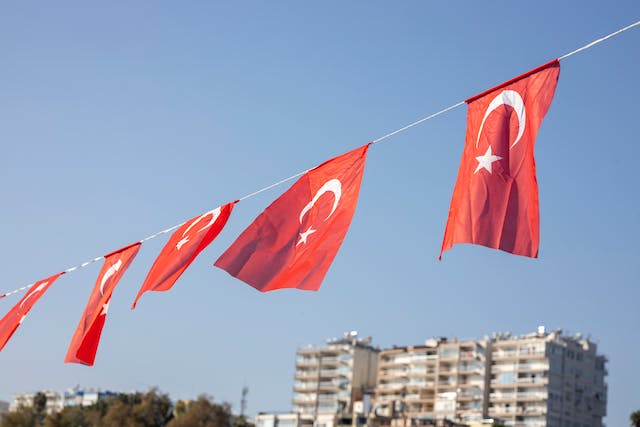Turkish Swear Words and How to Use Them

Would you like to unlock one of the most amusing aspects of the Turkish language? In today’s blog, we’ll unravel the most popular Turkish swear words, dividing them into different subgroups so as to better understand how Turkish profanity works and what it says about Turkish culture.
Are you ready for an unconventional language journey? Let’s get started.
→Find a Native Tutor Now and Start Learning a Language Now←
Light Turkish Swear Words
As we said in our Arabic curse word guide, we don’t always use swear words to hurt or insult people. Sometimes, swearing is a way of joking, an easy way to make a friend laugh or to let someone know there’s no need to keep things formal.
When it comes to Turkish swear words, these words are almost always safe (as long as you and your interlocutor are good friends!)
Variations of idiot
All the words in this section can be used to mean someone is silly or stupid, and they are regarded as fairly light if used in a friendly context:
- Aptal
- Embesil
- Gerizekalı
- Gerzek
- Mal (literal translation: cattle)
- Salak
Animal-related Swear Words:
These Turkish swear words are used to mean someone is a loser or has little value.
- Öküz (ox)
- Manda(buffalo)
- Eşek(donkey),
- Hayvan(animal)
- Ezik(literally: crushed)
- It (dog)
Other Light Turkish Swear Words
- Yavşak (literally: newborn headlice; meaning: a creepy person)
- Dallama (dumb ass)
- Pislik (literally: piece of dirt, meaning: a jerk)
- Piç (bastard)
Turkish Swear Words and Female Adultery
Attitudes towards adulterous or promiscuous women in Turkey are diverse and influenced by a combination of cultural, religious, and individual beliefs. While there may be conservative views in certain communities that frown upon such behavior, especially in more traditional and rural settings, urban areas tend to showcase a broader spectrum of attitudes.
However, it would be difficult to deny that Turkish people have a lot of words to refer to sexually liberated women.
Here are just a few words people use to mean “slut” in the Turkish language, ordered from the least to the most offensive:
- Kaşar
- Aşüfte
- Yosma
- Kevaşe
- Motor
- Sürtük
- Kaltak
- Fallik
- Prospu
- Fahişe
Turkish Insults and Sexual Orientation
Modernization and exposure to diverse viewpoints have contributed to a gradual shift in societal norms in Turkey, leading to increased acceptance in some circles. However, challenges persist, and the LGBTQ+ community may still face discrimination and social stigma.
Unsurprisingly, most of the insults people use have to do with passive homosexuality, which goes to show that attitudes towards homosexuality are deeply ingrained in sexist views on gender roles.
Here are a few Turkish swear words that refer to passive gay men:
- Ibne
- Götveren
- Puşt
Turkish Swear Words Related to Pimping
Suggesting that someone is a pimp is highly offensive in Turkish, which is why we suggest not using the words in this section at all.
- Pezevenk (a pimp)
- Ciğersiz pezevenk (literally: a pimp without a liver)
Turkish Swear Words and Genitalia
In English, we can say that someone is a D-word or a C-word, depending on how angry we are.
In the realm of Turkish insults, genitalia also takes center stage, as illustrated by the words below:
Yarrağımı ye (suck my d—)
Yarrak kafa (d— head)
Yarrak ağızlı (d— mouth)
Dalyarak (thin d—)
Amcık (c—)
Amcık ağızlı (pussy mouth)
Beyond Turkish Swear Words: FAQs about Turkish Culture

What is offensive in Turkish culture?
Offensiveness in Turkish culture can vary based on individual sensitivities, but certain topics are generally approached with caution. Discussions about religion, politics, and family matters require a degree of tact. Additionally, using profanity, especially towards family members, is considered highly disrespectful. It’s advisable to be mindful of cultural nuances and exercise sensitivity in these areas.
Are Turks polite?
Politeness is highly valued in Turkish culture. Turks often demonstrate courteous behavior, such as using formal language and employing honorifics when appropriate. Hospitality is a significant aspect of politeness, with Turks known for their warm welcomes to guests. Respecting elders and displaying good manners in social interactions are integral components of Turkish politeness.
How do Turkish people show respect?
Turkish people express respect through various gestures and actions. Addressing others with titles like “abi” (brother) or “abla” (sister) signifies a level of familiarity and respect. Offering tea or coffee as a sign of hospitality is common, and standing up to greet someone is a gesture of courtesy. Additionally, active listening, maintaining eye contact, and refraining from interrupting during conversations are considered respectful behaviors.
How do you say the f-word in Turkish?
While it’s important to approach language with respect, if you’re curious about strong language in Turkish, the equivalent of the f-word is “siktir” or “sik.” However, it’s crucial to exercise caution when using profanity, as it can be offensive and disrespectful in many contexts. Learning and understanding the cultural nuances of language is essential for effective and respectful communication in any culture, including Turkish.
→Find a Native Tutor Now and Start Learning a Language Now←
Learn Turkish with LovLan
In conclusion, exploring Turkish profanity offers a unique glimpse into the intricacies of Turkish culture, where language becomes a canvas for expressing emotions, camaraderie, and, at times, anger.
It’s important to navigate this linguistic landscape with respect, understanding the cultural nuances that shape these expressions. For those eager to delve deeper into the art of communication in Turkish, consider reaching out to a Turkish tutor on our website.
Customized Turkish lessons not only enhance language proficiency but also provide a nuanced understanding of the cultural context, making your linguistic journey more enriching and authentic. At LovLan, we help language learners connect with native tutors from all over the world for a personalized learning experience. Explore our Turkish tutors’ profiles now and find your match!



